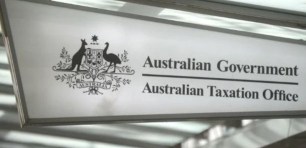
Deputy Leader of the Australian Labor Party Richard Marles looks after the small business portfolio. Source: AAP/James Ross.
Labor has made its election pitch to the small business community, promising to cap invoice payment times at 30 days, champion lower merchant service fees, standardise disaster support, and slash red tape at tax time.
Just days after opposition leader Anthony Albanese mentioned small businesses once in his federal budget reply, deputy opposition leader and shadow small business minister Richard Marles declared Labor the “party for small business” at Tuesday’s COSBOA National Small Business Summit in Sydney.
That statement rests on Labor’s plan to limit the time between a small business invoicing a government agency, and that public body actually paying the vendor or service provider.
The 30-day commitment serves as a direct appeal to SMEs, which serviced 27%, or $18.7 billion, of Commonwealth contracts in the 2020-2021 financial year. The current average payment time sits at 37 days, Labor said on Tuesday.
Labor previously announced a plan to “maximise” government procurement from local companies if elected.
For its part, the Coalition asserts it has paid invoices up of to $1 million within 20 days since 2020.
Least cost routing on the agenda
Beyond a commitment to paying contractors in a timely manner, Marles said a Labor government would work to lower transaction costs for vendors.
That plan hinges on least-cost routing — a method where merchants can cut the cost of transaction fees each time a customer makes a debit purchase.
Least-cost routing allows merchants to process debit sales through Australia’s eftpos system, which can charge lower merchant fees per transaction than the international Visa Debit and Debit Mastercard systems.
While the Reserve Bank of Australia expects payment facilitators to promote least-cost routing for in-store purchases, and hopes to highlight the option for online purchases by the end of 2022, small business groups have been calling for urgent action to address higher transaction costs.
Labor appears to have taken up the cause for its election campaign.
The party will establish a “clear timeline for implementing least-cost routing or similar,” according to a new party statement, which declares SMEs are “disproportionately impacted” by steep transaction fees.
Standardised small business support
Labor has also pledged to standardise the kind of business support packages available to small businesses in times of disaster.
If elected, the party has promised to work with state and territory governments, industry groups, and local communities to “end the uncertainty” surrounding crisis payments and who can access them.
The party also said it would work to cut the time small businesses spend organising their tax affairs, increasing the time operators can spend growing their operations.
Labor’s policy platform stands as an alternative to the Coalition’s appeals to the small business community, and a federal budget package including wage subsidies for apprentices and generous tax deductions for tech upgrades.
Handpicked for you

CPA welcomes Labor scrapping trust fund tax reform, financial advice deductions



COMMENTS
SmartCompany is committed to hosting lively discussions. Help us keep the conversation useful, interesting and welcoming. We aim to publish comments quickly in the interest of promoting robust conversation, but we’re a small team and we deploy filters to protect against legal risk. Occasionally your comment may be held up while it is being reviewed, but we’re working as fast as we can to keep the conversation rolling.
The SmartCompany comment section is members-only content. Please subscribe to leave a comment.
The SmartCompany comment section is members-only content. Please login to leave a comment.